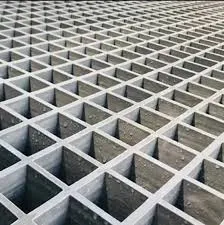
-
 Afrikaans
Afrikaans -
 Albanian
Albanian -
 Amharic
Amharic -
 Arabic
Arabic -
 Armenian
Armenian -
 Azerbaijani
Azerbaijani -
 Basque
Basque -
 Belarusian
Belarusian -
 Bengali
Bengali -
 Bosnian
Bosnian -
 Bulgarian
Bulgarian -
 Catalan
Catalan -
 Cebuano
Cebuano -
 China
China -
 China (Taiwan)
China (Taiwan) -
 Corsican
Corsican -
 Croatian
Croatian -
 Czech
Czech -
 Danish
Danish -
 Dutch
Dutch -
 English
English -
 Esperanto
Esperanto -
 Estonian
Estonian -
 Finnish
Finnish -
 French
French -
 Frisian
Frisian -
 Galician
Galician -
 Georgian
Georgian -
 German
German -
 Greek
Greek -
 Gujarati
Gujarati -
 Haitian Creole
Haitian Creole -
 hausa
hausa -
 hawaiian
hawaiian -
 Hebrew
Hebrew -
 Hindi
Hindi -
 Miao
Miao -
 Hungarian
Hungarian -
 Icelandic
Icelandic -
 igbo
igbo -
 Indonesian
Indonesian -
 irish
irish -
 Italian
Italian -
 Japanese
Japanese -
 Javanese
Javanese -
 Kannada
Kannada -
 kazakh
kazakh -
 Khmer
Khmer -
 Rwandese
Rwandese -
 Korean
Korean -
 Kurdish
Kurdish -
 Kyrgyz
Kyrgyz -
 Lao
Lao -
 Latin
Latin -
 Latvian
Latvian -
 Lithuanian
Lithuanian -
 Luxembourgish
Luxembourgish -
 Macedonian
Macedonian -
 Malgashi
Malgashi -
 Malay
Malay -
 Malayalam
Malayalam -
 Maltese
Maltese -
 Maori
Maori -
 Marathi
Marathi -
 Mongolian
Mongolian -
 Myanmar
Myanmar -
 Nepali
Nepali -
 Norwegian
Norwegian -
 Norwegian
Norwegian -
 Occitan
Occitan -
 Pashto
Pashto -
 Persian
Persian -
 Polish
Polish -
 Portuguese
Portuguese -
 Punjabi
Punjabi -
 Romanian
Romanian -
 Russian
Russian -
 Samoan
Samoan -
 Scottish Gaelic
Scottish Gaelic -
 Serbian
Serbian -
 Sesotho
Sesotho -
 Shona
Shona -
 Sindhi
Sindhi -
 Sinhala
Sinhala -
 Slovak
Slovak -
 Slovenian
Slovenian -
 Somali
Somali -
 Spanish
Spanish -
 Sundanese
Sundanese -
 Swahili
Swahili -
 Swedish
Swedish -
 Tagalog
Tagalog -
 Tajik
Tajik -
 Tamil
Tamil -
 Tatar
Tatar -
 Telugu
Telugu -
 Thai
Thai -
 Turkish
Turkish -
 Turkmen
Turkmen -
 Ukrainian
Ukrainian -
 Urdu
Urdu -
 Uighur
Uighur -
 Uzbek
Uzbek -
 Vietnamese
Vietnamese -
 Welsh
Welsh -
 Bantu
Bantu -
 Yiddish
Yiddish -
 Yoruba
Yoruba -
 Zulu
Zulu
frp desalination pipes and fittings for efficient water treatment
The Role of FRP Desalination Pipes and Fittings in Efficient Water Treatment
In an era of increasing water scarcity and environmental challenges, desalination has emerged as a critical technology for ensuring a sustainable water supply. The use of Fiberglass Reinforced Plastic (FRP) pipes and fittings in desalination processes is revolutionizing the efficiency and effectiveness of water treatment systems. This article explores the benefits of FRP materials in desalination, highlighting their importance in modern water treatment infrastructure.
Understanding FRP and Its Advantages
Fiberglass Reinforced Plastic, or FRP, is a composite material that combines a polymer matrix with fibrous reinforcements, typically glass fibers. This combination results in a lightweight yet exceptionally strong material that exhibits outstanding resistance to corrosion, fatigue, and harsh environmental conditions. These properties make FRP an ideal choice for desalination applications, where materials are constantly exposed to high salinity levels, pressure, and temperature variations.
One of the most significant advantages of FRP pipes and fittings is their remarkable corrosion resistance. Traditional materials, such as steel and concrete, often deteriorate rapidly when introduced to seawater and brine during the desalination process. This not only shortens the lifespan of the infrastructure but also results in increased maintenance costs. In contrast, FRP materials are inherently resistant to corrosion, reducing the frequency and cost of repairs. Consequently, FRP systems can operate efficiently for longer periods, providing a reliable source of treated water.
Lightweight yet Durable
Another compelling benefit of FRP is its lightweight nature. FRP pipes and fittings are significantly lighter than their metal counterparts, which simplifies transportation and installation processes. This reduced weight can lead to lower installation costs and minimized environmental impact during the construction phase. Additionally, the flexibility of FRP allows for easy configuration and adjustment to meet the specific needs of various desalination systems, ensuring that these facilities can adapt easily to changing requirements.
frp desalination pipes and fittings for efficient water treatment

FRP materials are also known for their excellent thermal and acoustic insulation properties. The insulation reduces energy loss during the desalination process, which is crucial for enhancing overall efficiency. Furthermore, reduced noise during operation contributes to a more environmentally friendly solution, benefiting surrounding communities.
Sustainability and Energy Efficiency
The importance of sustainability in water treatment cannot be overstated. The production of FRP materials typically involves a more eco-friendly process compared to traditional materials. Furthermore, FRP's durability leads to fewer resources being consumed over the lifespan of the desalination facility, contributing to a reduced carbon footprint.
Energy efficiency is another critical aspect of modern desalination technologies. Since the desalination process requires significant energy inputs, using materials that can withstand higher pressures and temperatures without compromising performance is essential. FRP’s strength and reliability under such conditions enable desalination plants to operate optimally while consuming less energy.
Conclusion
As the global demand for freshwater continues to rise in the face of climate change and population growth, the role of efficient water treatment technologies becomes increasingly vital. FRP desalination pipes and fittings represent a significant advancement in this field, providing a lightweight, corrosion-resistant, and sustainable option for water treatment. By enhancing the durability and efficiency of desalination systems, FRP materials contribute to a more secure and reliable freshwater supply.
Investments in FRP technology not only promise financial savings through reduced maintenance and installation costs but also support the overarching goal of sustainable water management. As communities and industries continue to seek solutions for water scarcity, embracing innovative materials like FRP will play a crucial role in shaping the future of water treatment and desalination practices worldwide.









